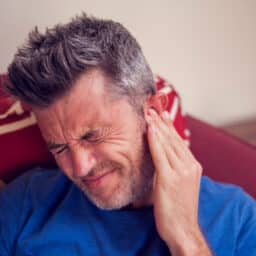How Hearing Aids Can Expand Your Social Circle

In a world buzzing with conversation and connection, hearing loss can feel like a barrier, gradually isolating us from a thriving social life. However, with technological advancements and a proactive approach to managing hearing loss, you can bridge the gap and cultivate meaningful connections. Let’s take a look at the impact hearing loss has on…
HLAA Webinar Focuses on the Workplace

The Hearing Loss Association of America is hosting a virtual webinar about workplace wellness. Enhancing Workplace Effectiveness: Technologies for People with Hearing Loss is scheduled for 10 a.m. MT Tuesday, February 27. “Those of us with hearing loss know that it can be difficult to operate in workplaces where everyone assumes normal hearing,” HLAA wrote…
Hearing Loss Events To Add to Your 2024 Calendar

Adding trips, birthdays and daily reminders to your calendar is a great way to ensure you never miss important moments or opportunities this year. While planning vacations to the Black Canyon Campground or setting up birthday dinners for the important people in your life, consider setting aside some time to engage with the world of…
How To Effectively Communicate with Those Who Don’t Know You Have Hearing Loss

Living with hearing loss introduces unique challenges, particularly when engaging with individuals who don’t share the same experience. While it isn’t a problem, the importance of effective communication becomes evident in emergencies or critical situations. Being open about your hearing loss can empower others to offer better assistance when needed. Clear Communication Strategies In emergency…
What To Know About Musician’s Monitors For Hearing Protection

Professional musicians are nearly four times more likely to develop noise-induced hearing loss (NIHL) compared to the general public. This condition is common among 18% of adults aged 18-69 who have been exposed to loud noises at work for over five years. Therefore, it’s crucial to understand how hearing damage can occur and the preventative…
Pulsatile Tinnitus: Understanding and Managing the Symptoms

If you’ve ever gone for a run or hike on Winsor Trail, you are likely familiar with the sensation of hearing your heartbeat in your ears. Pulsatile tinnitus causes a similar heartbeat sound in the ears. However, with pulsatile tinnitus, the sound may arise anytime rather than solely after exercise or exertion. Let’s look at…
What Is the Link Between Hearing Loss and Iron Deficiency?

One in eight people in the U.S., aged 12 or older, has hearing loss based on standard hearing examinations. Approximately 15% of adults in the U.S. aged 18 or older report experiencing some degree of hearing trouble. Researchers are continually searching for keys to better understanding hearing loss, and recent research shows iron deficiency anemia,…
What to Know About Job Searching With Hearing Loss

The idea of job searching puts many into an immediate state of stress. Numerous hand-wringing aspects accompany a job search, from filling out and editing your resume to interviews and choosing first-day outfits from Uli’s Santa Fe. For those with hearing loss, these stressors can carry even greater weight. Let’s look at a couple of…
Does Hearing Loss Make You Tired?

Hearing loss can affect your life in many ways. The condition may make it harder to have phone conversations, watch TV with your family or enjoy a night out in Santa Fe with friends dining at La Boca. However, you may be surprised to learn that hearing loss can also make you feel more tired….
How Hearing Aids Can Help Improve Your Golf Game

October is Audiology Awareness Month. Your hearing health is essential to your overall quality of life and well-being. Protecting your hearing and treating any hearing loss you may have is vital to continuing to live an independent and fulfilling life. It’s estimated that roughly 28.8 million adults in the United States could benefit from hearing…
